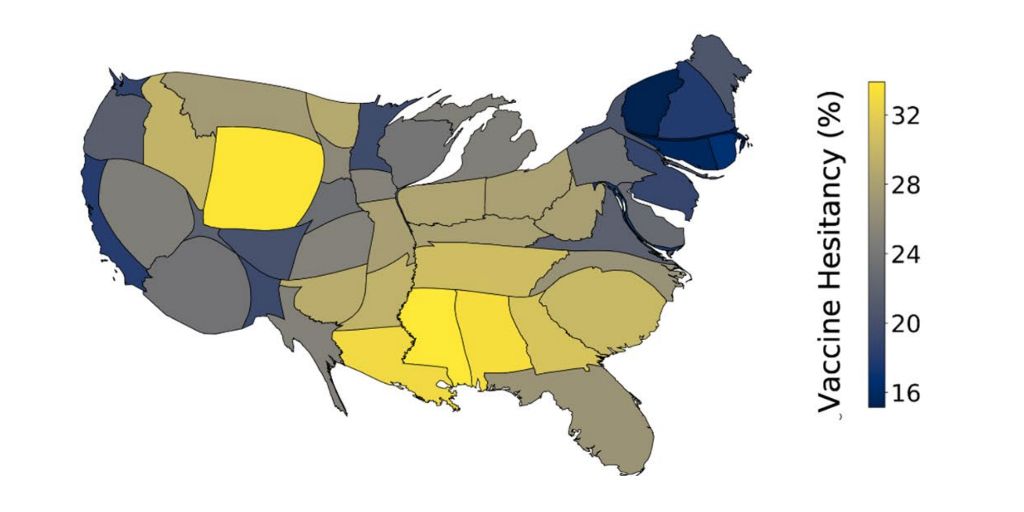Researchers See Clear Link Between Twitter Misinformation and COVID-19 Vaccine Hesitancy and Refusal
Justin Hendrix / Apr 28, 2022Last year, U.S. Surgeon General Vivek Murthy took the stage to announce a warning about health misinformation.
“As Surgeon General, my job is to help people stay safe and healthy, and without limiting the spread of health misinformation, American lives are at risk,” he said, announcing an advisory that included multiple recommendations to the social media companies.
Now, a new study utilizing data from Twitter, Facebook, and the Centers for Disease Control and Prevention (CDC) has confirmed the link between misinformation on social media and vaccine hesitancy and refusal. Researchers at Indiana University today published a paper in Nature's scientific reports titled "Online misinformation is linked to early COVID-19 vaccine hesitancy and refusal."
"Our research found links between misinformation posted on Twitter and hesitancy to take vaccines," said John Alexander Bryden, Executive Director of the Observatory on Social Media at Indiana University. "It's difficult to make a causal link from online misinformation to actual changes in vaccination behavior, but our results suggest that a link might be there and that platforms should be cautious about allowing health misinformation to spread."
To do their analysis, the researchers federated a variety of data, including 55 million tweets from the CoVaxxy dataset developed at Indiana University, Facebook Symptom Surveys provided by the Delphi Group at Carnegie Mellon University, and CDC data on vaccination uptake rates at the state level and vaccine hesitancy at state and county levels. The application of regression models allowed the researchers to demonstrate an association between online misinformation and vaccine uptake and vaccine hesitancy figures.

The prevalence of online misinformation is not the only factor strongly associated with vaccine uptake- political partisanship is also important. An "increase in the mean amount of online misinformation is significantly associated with a decrease in daily vaccination rates per million" just as political partisanship-- "a 10% increase in GOP vote"-- also leads to a decrease. Ultimately, the "results provide evidence for the problem of geographical regions with lower levels of COVID-19 vaccine uptake, which may be driven by online misinformation."
The researchers note:
Associations between online misinformation and detrimental offline effects, like the results presented here, call for better moderation of our information ecosystem. COVID-19 misinformation is shared overtly by known entities on major social media platforms. While people have a constitutional right to free speech, it is important to maintain an environment where individuals have access to good information that benefits public health.
Content moderation is serious business; lives depend on it. That reminder seems particularly important this week, as Twitter's potential new owner fumbles through various ideas on the subject.
Authors
